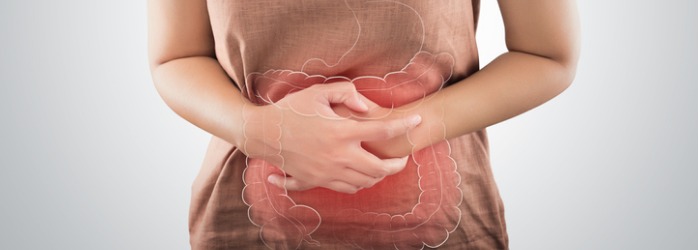Do you suffer from Coeliac Disease?

It’s Coeliac Awareness Week, and while many of us are aware that gluten (a protein found in wheat and other grains) can be difficult to digest, few realise that it is at the root of this lifelong autoimmune disease. So what exactly is coeliac disease?
Coeliac disease is a permanent disease of the small intestine, caused by an allergic toxicity to the gliadin protein found in gluten cereals. Where the condition is present, the lining of the small intestine is unmercifully attacked by gliadin, even in extremely small amounts – less than 0.5g a day. The lining becomes damaged and loses its ability to absorb nutrients from food.
Here, leading nutrition expert Patrick Holford shares his advice for those who have been diagnosed with the condition.
Avoid all gluten- or gliadin-containing foods
The only known effective therapy for coeliac disease calls for the complete, life-long elimination of gluten and gliadin from the diet. This means no wheat, rye or barley, in any form. Initially, I also recommend the avoidance of oats; however, if an IgG food allergy test does not show the presence of oat antibodies, then you can try reintroducing uncontaminated (gluten-free) oats and monitor any symptoms. Eight in ten coeliac-disease sufferers can tolerate oats, which do not contain gliadin. If this kind of diet is strictly followed, a dramatic resurgence of health should occur. The following are the gluten and non-gluten grains:
- Gluten Wheat, rye, barley, oats, spelt, kamut
- Non-gluten Rice, corn (maize), buckwheat, millet, gram (chickpea flour), amaranth
Heal your digestive tract with glutamine
Regardless of whether or not you have coeliac disease, your ‘inner skin’ – your digestive tract – works hard to digest and deal with the mountains of food you eat and, as a consequence, it can easily become damaged. If the gut’s immune system is reacting against gliadin, damage will result.
Although most of your body’s organs are fuelled by glucose, your digestive tract is a different story. It’s a vast and highly active interface between your body and the outside world (and actually measures the same size as a small football pitch when stretched out). Your digestive tract needs a lot of fuel to work properly day in and day out, and it runs on an amino acid called glutamine – thus sparing vital energy-giving glucose for use by your brain, heart and the rest of your body.
Not only does glutamine power your gut but it also heals it as well. The endothelial cells, which make up the inner lining of your digestive tract, replace themselves every four days and are your most critical line of defence against developing food allergies or getting infections.
If you have recently been diagnosed with coeliac disease, you need to take glutamine for at least a month, ideally together with digestive enzymes and a probiotic supplement. Glutamine is best taken last thing at night or first thing in the morning, when your stomach is empty, in a glass of cold water. Heat destroys glutamine, so don’t have it in a hot drink. Do this every day for a month to accelerate gut healing after avoidance.
Get the correct balance of beneficial bacteria
Inside your body are almost as many bacteria as living cells. Thriving bacteria flourish in a healthy digestive tract and die off in an unhealthy one. Once you’ve improved your digestion, ‘re-inoculating’ your digestive tract with probiotics (the name for these beneficial strains of bacteria) makes a big difference. These are called ‘human strain’ acidophilus and bifidus bacteria and work much better than dairy-derived strains found in normal yoghurt. If you do eat yoghurt, it’s best to choose those that use acidophilus and bifidus strains of bacteria.
These friendly bacteria are not only good for your digestive tract but also for your immune system and overall health. Once you’ve got the optimum bacterial balance in your gut, feeding them the right food helps to maintain the gut’s perfect bacterial balance. Taking a capsule, or powder, of probiotics for up to 30 days is all you need to get your inner flora flourishing.
What our two main beneficial bacterial species – Lactobacillus acidophilus and bifidobacteria – need us to eat is a diet rich in the fibre found only in fresh, unprocessed fruit, vegetables and grains. These foods contain ‘prebiotics’ – factors that nourish gut bacteria. Especially good foods in this respect are vegetables, especially chicory and Jerusalem artichokes; beans and lentils (pulses), especially soya; and seeds, especially chia and flax.
Best foods for Coeliac sufferers
- Rice
- Corn
- Buckwheat
- Quinoa
- Oats (for some)
- Flax and chia seeds
- Vegetables, especially chicory and Jerusalem artichokes, beans, lentils, including soya
- Fish (unbreaded)
Worst foods for Coeliac sufferers
- Wheat
- Rye
- Barley
- Alcohol
- Deep-fried foods
This excerpt is from Good Medicine by Patrick Holford and Jerome Burne.







